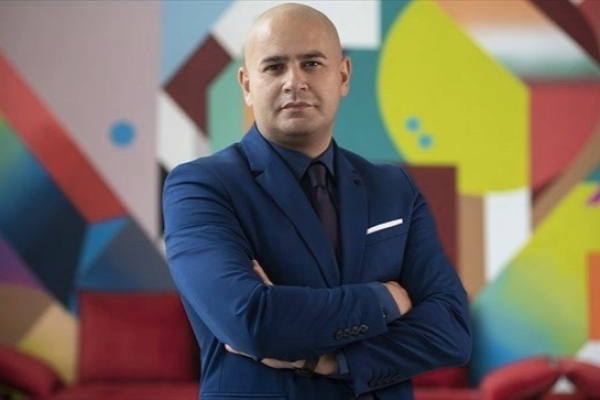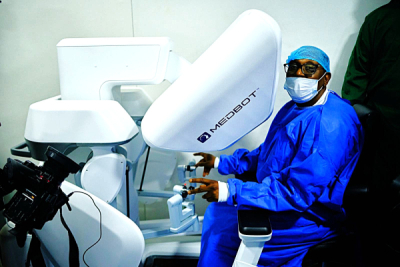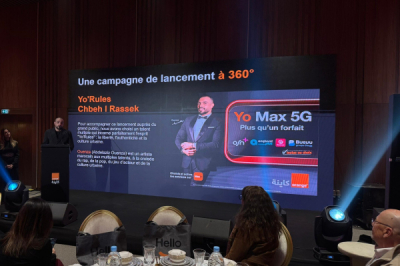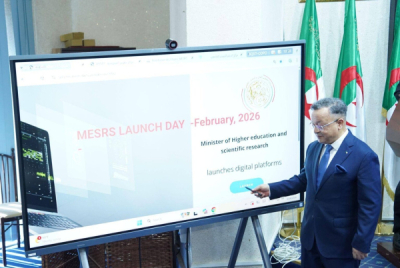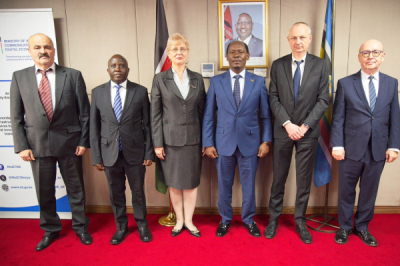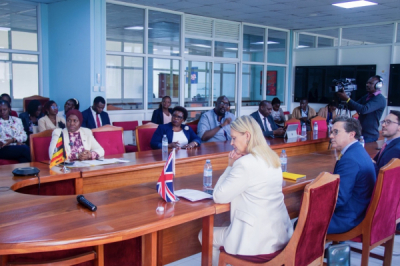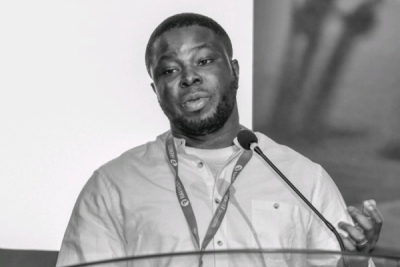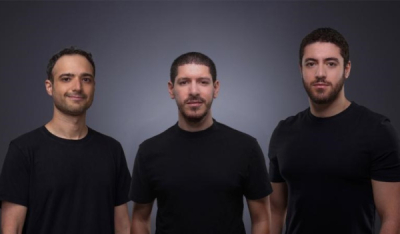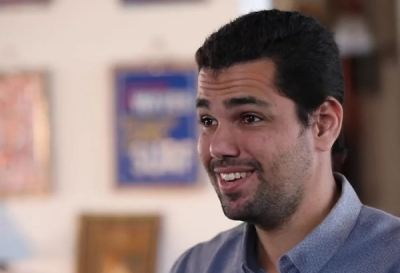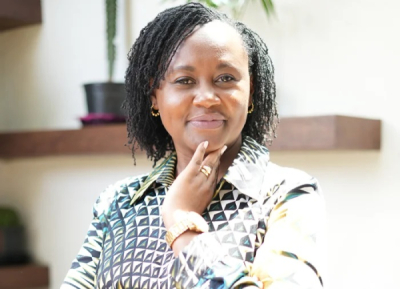Huawei Technologies, a regular participant in major global tech events, once again took part in the Mobile World Congress (MWC) held in Barcelona last February 27-March 2. During this international meeting, its Vice President in charge of Public Relations for Huawei Northern Africa talked to We Are Tech about some of the major themes defended by the Chinese group.
Why is Huawei increasingly interested in the African Cloud?
When we talk about digital infrastructure, what everybody first thinks about is the connectivity part. But, in this current era, connectivity generates a lot of data. And you need to have the right platforms to store and manage all that data. That's why we talk about cloud and data centers.
We believe that the cloud and data centers are an integral part of a country's digital infrastructure. They are crucial to managing the digital transformation that is currently taking place at all levels in many countries. There are already several public cloud offerings- Huawei is obviously making some of those offers- but, in some cases, we have to think about digital sovereignty and sovereign cloud is becoming a strategic topic at the national level to manage issues related to eGovernance, fintech, and other services. Given the importance of that topic, Huawei is trying to raise awareness on it and train competent people at the local level because [having competent local talents ] is also part of the sovereignty we are talking about. We are trying to help start-ups develop their activities in the cloud to gain greater openness and international exposure. For Huawei, cloud computing is very important in all of its aspects and we are initiating actions to support the rapid development of local players in the field.
Earlier, you mentioned support for start-ups. How can the cloud have an impact on their growth?
The cloud allows us to centralize all IT systems and allows everyone to access them in a controlled way, at any time and from anywhere. As a result, it makes exchanges between people easier and more fluid. It also improves companies’ efficiency while fostering the optimization of IT systems. In the old model, each employee uses his or her computer and this is not necessarily efficient, neither in terms of cost nor in terms of maintenance, or performance. The use of cloud technologies improves these aspects and allows a better exchange between the actors since the cloud and the computer systems are accessible from anywhere and at any time, and there are no security problems, loss of data, loss of physical hardware, etc. Clouds are generally subject to extremely rigorous standards.
Cloud computing also offers companies international exposure. For example, an Ivorian startup can sell its services in Singapore without having to deal with geographical constraints. It can access its systems anywhere in the world with the cloud and just present its offers.
In practical terms, how does Huawei support African startups’ cloud adoption?
We have launched a support program essentially forced on cloud technologies. The program called Spark selects start-ups that are offered several incentives depending on their categories. They will receive cloud, artificial intelligence, software, and other tech training since with artificial intelligence, one can improve cloud capabilities. We will also train the startups on how to better use cloud technologies for business operations. We will also subsidize them, give them free access to Huawei's public cloud, and finally provide them with visibility in major events that Huawei takes part in to connect them with our partners, customers, investors, etc. so that they can grow.
What are the countries that have welcomed the program and what are its ambitions for 2023?
The program was launched at the end of last year. In its first stage, it was launched in Egypt, Morocco, and Tunisia. This year, new countries are targeted, including Côte d’Ivoire, Cameroon, and Senegal.
What is the relationship between cloud technologies and connectivity?
To make good use of the cloud, you need good connectivity. If you have a lot of computing power in the cloud and a lot of storage capacity that you access with low bandwidth, it won't work. Connectivity will be a bottleneck in that case. You need a good connection to use the full power of cloud technologies.
5G is now gaining momentum around the world. What is Huawei doing to demonstrate the strategic importance of this technology to public and private actors who still have a wait-and-see attitude on the continent?
For years now, we have been trying to raise stakeholders’ awareness about the true power of 5G. Above all, we are trying to prepare usage scenarios. We are making progress. 5G will arrive this year in some countries and next year in others. In any case, it is coming. But to benefit from the true power of this technology, we need to prepare the use cases that will make the most of it. We will find scenarios that are essentially Business-to-Business (B2B) that will have a greater impact on the digital economy and the economy in general. We are already preparing these use cases with governments, telecom regulators, telecom operators, start-ups, etc.
We are trying to show the way, the opportunities, and what is feasible in the country and also share the experience and the best practices in other countries or regions.
Considering the impact of the digital on the social sector, is Africa ready for 5G usage scenarios that are not essentially B2B?
There are many 5G scenarios whose success varies from one country to another. They may work in some but not in others. In any case, we see obvious scenarios in several African countries. In South Africa, for example, in the mines, 5G has been adopted to improve worker safety. It is no longer necessary for operators of excavators, trucks, and other machinery to be present on site. They are located in rooms and control these vehicles remotely using 5G. This is a real scenario that can be replicated elsewhere. Another scenario that has worked well in other countries and we are seeing the effectiveness is the digitization of ports. Several ports have adopted the 5G around the globe. It has helped improve work and this has had an impact on the economy. For many African ports, increasing efficiency with 5G will have an immediate beneficial impact on the country's economy.
Will 5G be relevant for individual consumers in Africa right now?
Yes, it is relevant. Some scenarios require more bandwidth. During Covid-19 we experimented with distance education. Today it has evolved and distance education allows us remotely attend classes. 5G can also be very interesting in entertainment scenarios. For example, in Barcelona, we showed that the customer experience when watching a match can completely change because you will no longer be limited to the camera angle that the director will choose but you will be able to choose the viewing angle that suits you all by yourself. You will be able to focus on a specific individual, a specific part of the field thanks to ultra-high-definition cameras that will stream the event in 360 degrees.
Even in gaming, an industry whose value is increasing, 5G will impact the customer experience. It will give the opportunity to be immersed in the game. The retail industry will also benefit from virtual malls that can be visited from home. There is a multitude of scenarios. Then each country will develop the scenarios that fit their needs, that fit the local culture, and the local requirements.
Mobile devices play a big role in the development of connectivity in Africa. Why do 5G smartphones cost several times more than 4G-enabled ones?
The first point is that the performance of components used for 5G phones is more complex. There's a lot more complexity, but not just that. You'll also see that the same 5G components will lose value over the years. We're not going to compare 4G and 5G components but only 5G to each other over time and we'll see that there will be a depreciation effect. Those who do research and development invest a lot of money to reach standards and patents. And these costs must be amortized, so a certain volume of components must be produced for these costs to be amortized. This is why, with the increase in the number of 5G subscribers to 1 billion worldwide, the cost of 5G phones is going down. Currently, a 5G phone costs less than 200 dollars, which was not the case last year. The amortization effect on a larger scale really helps amortize the research costs invested in the previous years. This will also be the case for all the organizations that contributed to the development of these components. It is important to remember that the component manufacturers are different from the phone manufacturers.
Keeping in mind that connectivity and the cloud store a vast amount of personal, business, financial, etc. data, what is Huawei doing to ensure that the infrastructure it deploys is secure?
Cybersecurity is the foundation of our work. All the digitization, connectivity, etc. services we offer are meaningless if we can't secure them. When the trust between a user and the system he/she uses is broken, there is no development. Huawei has a strong interest in this issue and this goes back more than 20 years. Huawei has had cybersecurity management mechanisms in place for many years. People are already talking about it a little bit because there has been an increase in Internet usage, but we have been in this segment long before. We have provided equipment in more than 176 countries and there are more than three billion people on our networks. We can't afford to have any failures or concerns about the quality of our products. Concretely, we operate through various aspects.
First, our products are "security by design". This means that the issue of protecting the user of the product or service is integrated right from the design stage. At Huawei, we currently comply with all international cybersecurity standards. We have extremely rigorous procedures for network deployment and maintenance, coupled with monthly reviews. These processes allow us to avoid all types of human error. We have also deployed several transparency centers around the world -- seven -- where all our products and solutions are open to all our partners to test their integrity and robustness.
Interview by Muriel Edjo


